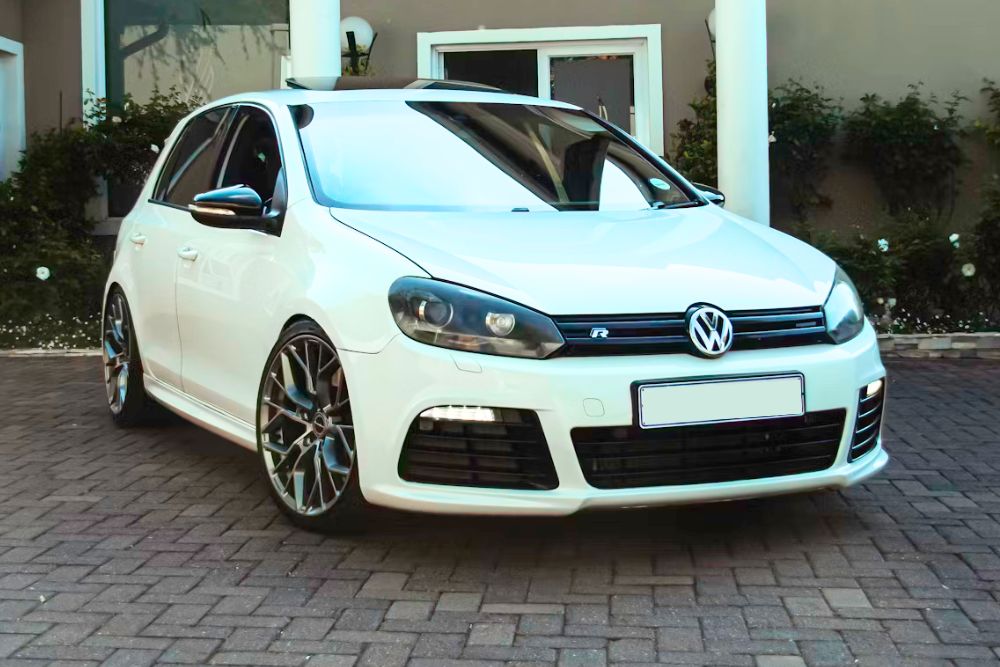You might wonder if you can save money at the petrol station by choosing 91 octane petrol for your Volkswagen Golf. Although it’s cheaper, it’s important to consider how it might affect your car’s overall health and performance.
95 RON or higher is recommended for Volkswagen Golfs, and using a lower octane than recommended could harm your Golf’s engine efficiency and possibly lead to expensive problems later.
But are these risks really significant, and are there circumstances where a lower octane might be acceptable?
Fuel Type Recommendations
It is recommended to use at least 95 RON octane fuel in your Volkswagen Golf for the best performance and to keep the engine healthy.
Using 98 RON could improve your driving experience and make your car more efficient, so this is the ideal fuel you’d want to use.
If you use lower octane fuels, such as 91 RON, you may face engine knocking and lower performance.
This is especially important for turbocharged engines like in many Golfs, where higher octane fuels are essential to maintain the vehicle’s power and fuel economy.
You have to also keep in mind that these cars were tuned by the factory to run 95 RON or higher, and are not designed to run on 91.
Using 91 RON regularly can actually cause long-term damage to your engine. The money you save on cheaper fuel might be spent on increased maintenance costs and possibly costly repairs later.
You could also see a drop in fuel economy, which means you’ll end up refuelling more often than if you’d used the recommended 95 or 98 RON.
Although 95 RON is cheaper than 98 RON, the small price difference is worth paying for the better engine performance and longer life of your car.
Always consider the cost against the potential risks and benefits—your Golf deserves that careful consideration.
How 91 RON Fuel Can Affect Your Motor
When you fill your Volkswagen Golf with 91 octane petrol, there’s a greater chance of engine knocking.
This type of petrol doesn’t suit the compression requirements of your Golf’s engine, resulting in reduced performance and risk of damage.
You may experience slower acceleration and a decline in your car’s responsiveness, as well as an increase in fuel usage.
Octane Impact on Turbo
Using higher octane fuel, such as 95 RON or above, improves the performance of your Volkswagen Golf, especially on turbocharged models like the GTI. It reduces the risk of engine knocking and increases efficiency. This type of fuel matches the compression requirements of your Golf’s engine, allowing it to perform more effectively and last longer.
The turbocharger benefits from higher octane fuel because it can handle higher pressures without the risk of early combustion, known as engine knocking, “pinging” or detonation, which could damage the engine, especially over the long term.
Selecting the correct octane won’t only enhance the immediate response of your engine but also help in maintaining the health of your vehicle over time.
Risk of Engine Knocking
Using 91 octane petrol in your Volkswagen Golf, especially if it has a turbocharger, often results in engine knocking because the fuel ignites too soon in the cylinders. This knocking indicates that your fuel isn’t burning properly, which can significantly affect your car’s performance and its long-term condition.
Driving under heavy conditions with 91 RON increases the risk of this harmful occurrence. When you drive your Golf hard, like at WOT or up hills, using a lower octane can make the fuel ignite too early, causing a pinging or knocking sound. This noise isn’t just irritating—it signals that your engine is in trouble.
Therefore, it’s important to use 95 RON or higher to keep your car running well and avoid expensive repairs in the future.
Is Using Higher Quality Fuel That Much More Expensive?
Using 91 octane petrol in your Volkswagen Golf will only save you about $4 per tank compared to 95 octane.
Considering the small difference, it is not really worth the risk of damaging your motor. Even if you fill up every 2 weeks, you would only save $96 per year.
You should also take into account the fact that your car may well experience a decrease in fuel efficiency running 91, meaning you’ll be filling up more often, and might actually end up costing more in the long run!
Conclusion
In conclusion, although you might be tempted to use 91 octane petrol in your Volkswagen Golf to save money, it’s not a wise choice.
Not only will it not save you much at all in the real world, but using petrol with a lower octane than recommended can damage your engine and lead to expensive repairs.
It’s best to use at least 95 RON petrol to keep your Golf in good condition, ensure it runs efficiently, and avoid high maintenance costs.
If you need your Volkswagen Golf serviced, be sure to get in touch with us today by calling 09 441 3635 or emailing service@dodsonmotorsport.com.

 Looking for Dual Clutch transmission components outside of New Zealand?
Looking for Dual Clutch transmission components outside of New Zealand? 